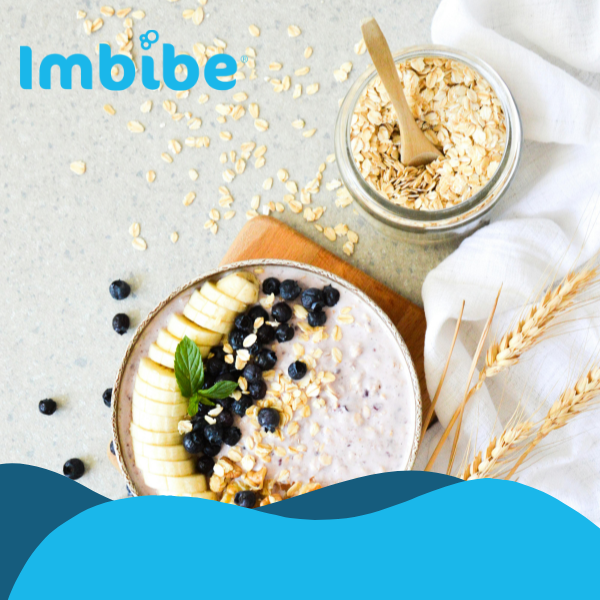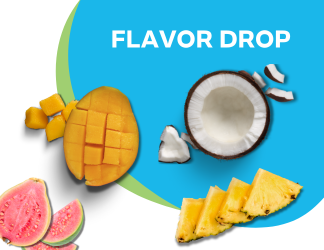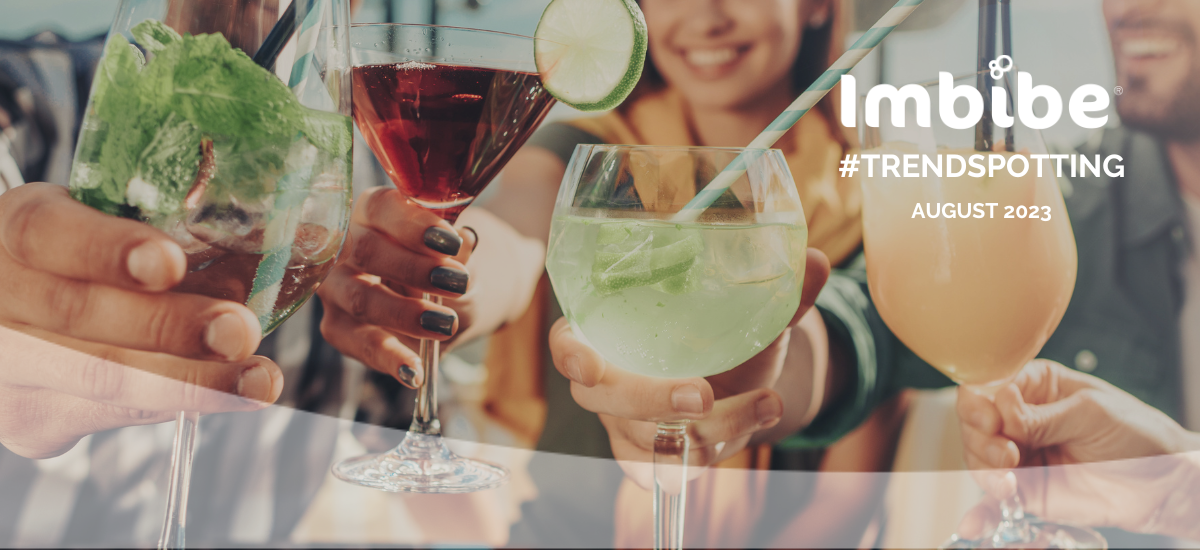
Energy Edition
We have a stake in nearly every beverage category, but energy is consistently a major player in our portfolio. Of all our projects initiated in 2020, 47% were categorized as sports nutrition, energy or nutraceutical, with nearly half of those qualifying as energy-focused projects. This segment continues to boom, with IRI reporting sales surpassing $14bn in the 52 weeks ending 10/04/20, representing a 5.4% increase from the previous period. With pressures of the pandemic still contributing to higher than ideal amounts of screen time, longer workdays, and unreliable childcare, consumers will continue to turn to food and beverages touting energizing benefits to help them get through the day.
Energy from Plants?!?
One microcosm of the energy drink segment is made up of new age products that utilize and often broadcast more natural sources of energy, i.e. plants, including cascara, yaupon, green tea, yerba mate, and guayusa. Brands of all sizes have taken note of consumer acceptance and interest in all things plant-based and some have responded by incorporating the power of plants into their messaging and/or brand story. Mintel reported that there was a 116% increase in plant-based claims on new F&B launches from 2018 to 2020 and we predict that energy drinks, both legacy and the loftier products, will continue to capitalize on the positive associations with plant-based.
Case in point: A Shoc may not be what you think of when you think of plant-based and/or next-gen energy, though their new line Accelerator boasts plant-based thermogenics and natural caffeine from green coffee, coffee fruit (cascara), guarana and yerba mate. This vegan-friendly line is currently available in orange mango, cherry limeade and island guava. While bai boost also touts plant-based energy on their new caffeinated antioxidant water beverage line, they also call out no artificial sweeteners and rely on both erythritol and stevia. As for the plant-powered energy, that can be attributed to extracts from coffee fruit (cascara) and tea.
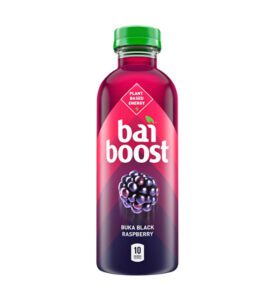
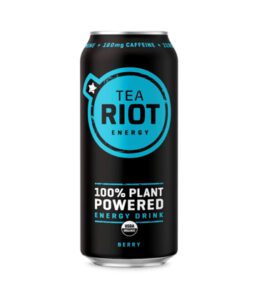
Though teaRIOT was established in 2014, their nationwide launch at Whole Foods in April 2020 helped put them on more consumers’ radars and bolster their Instagram following, which currently stands at 107k followers. They also had a successful fundraising round in March of this year, which landed them $5m to support future plans for expansion. The 100% plant-powered energy in their mango, berry, cherry watermelon and citrus variants comes from green tea, its extract and a vegan Vitamin B12.
Nomad Energy has also been on the market for several years, but we expect more consumers to discover this cascara-forward and sustainably aligned energy drink. There is still untapped opportunity to upcycle cascara/coffee fruit, though a lesser-known beverage ingredient is starting to bubble and may be more accessible since it’s grown in the U.S. It’s a big undertaking to teach consumers about the only naturally caffeinated U.S. grown plant, yaupon, but Austin-based Rambler seems up to the task. Their new sparkling energy drinks contain 75mg of caffeine and are available in lemon, peach, lime coconut, and blackberry mint.
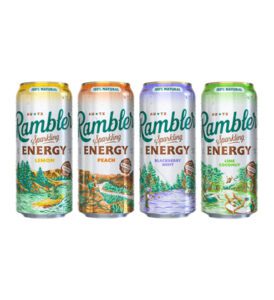
Honorable mentions: Riff, Oca, Lotus Energy Concentrates, and Yula.
Energy for the Whole Body and Mind
The mind/body connection has become even more prevalent as consumers across the world went into survival mode with the onset of the pandemic. Through fanciful language and less conventional ingredients, energy drinks are working to communicate that they deliver a boost for your physical and emotional self.
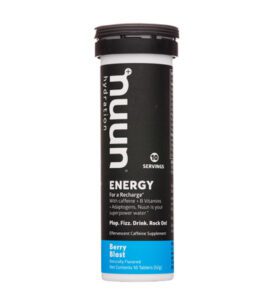
Market leader Red Bull recently launched a summer SKU in coconut berry. They remind their audience that this energy drink “vitalizes body and mind.” Nuun calls out the inclusion of adaptogens in their new energy line, though initially hit the market with hydration tablets (and now have versions that address sleep, immunity, muscle recovery and more). The all-around energy comes from green tea, panax ginseng and B-vitamins. Unlike Red Bull’s new SKU, these tablets are not sugar free, though they do include stevia in their formulation to help keep the calorie count low (15) and support the sweetness profile and experience their target market expects.
A new innovation coming from Earth & Star is a coffee energizer that capitalizes on the growing interest and acceptance of medicinal mushrooms. Their Black Coffee Cold Brew incorporates lion’s mane, cordyceps, reishi and chaga (and l-theanine, not from mushrooms) to support mental acuity and focus in their product that strives to deliver a calm energy.
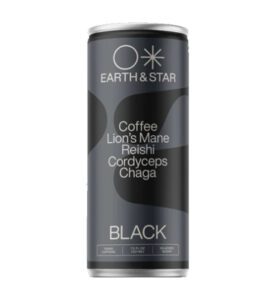
Energy Expanded
The energy segment has transformed to accommodate both hyper-specific need-states and broader needs that may appeal to a wider consumer bloc. Energy and weight loss is a pretty logical (and common) pairing (Hydroxycut Sparkling Cut, Celsius, RSP Amino Lean) but one that has started to trend is Energy + Immunity. The face of energy is constantly changing with products straddling category lines and energy sources being infused into bases that are a far cry from the Monsters and Red Bulls among us.
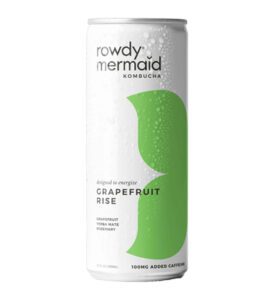
While we know that 70% of our immune system is housed in our gut and therefore addressing microbiome imbalance may make us feel better overall, which may include feeling more energetic, generally kombucha’s gut-supporting probiotics are not heavily associated with bursts of energy. Rowdy Mermaid has designed a provocative product that pushes the energy envelope. Grapefruit Rise kombucha is “designed to energize” with 100mg of caffeine and yerba mate. (You’ll also find the term plant-based on the bottom half of the can.)
Ito En’s matcha love line expanded in April with three energy + variants, which include immunity, soothe and focus. Ginger and ginseng support the soothe and focus SKUs, respectively, and we see acerola, an underrepresented fruit in packaged products in North America, supporting the immunity line. Acerola cherries (also called Barbados cherries) are very rich in Vitamin C (one offers 134% of the RDV) so we expect this ingredient to appear on more front of packs for at least the next few years (and likely beyond).
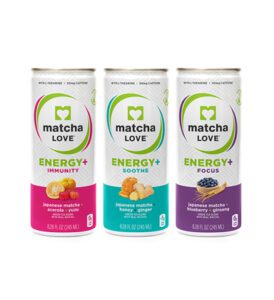
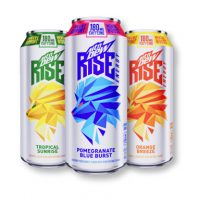
We of course can’t look past two recent susbtantial energy + immunity product launches, one from Mountain Dew and the other from Molson Coors. Mountain Dew Rise incorporates citicoline (to support the mental boost message), Vitamin C (for immune support) and 180mg of caffeine. The Rock’s partnership with Molson Coors, which resulted in ZOA, also touts immunity boosting properties (100% DV of Vitamin C from camu camu and our new friend, acerola). This 160mg of caffeine energy drink also cites focus from B-vitamins and choline, hydration from a couple of electrolytes and a physical component in the blend from 250mg of BCAAs.
Honorable mention: Drink Rebellious
Our flavor chemists, product developers and taste modulation experts can support you throughout your next energy project, whether it be through sending flavor samples so you can evaluate profiles that stand out in caffeinated environments, by taking on benchtop development or through The Senses™ samples. Email us at thedrinktank@imbibeinc.com to align on your next project.

